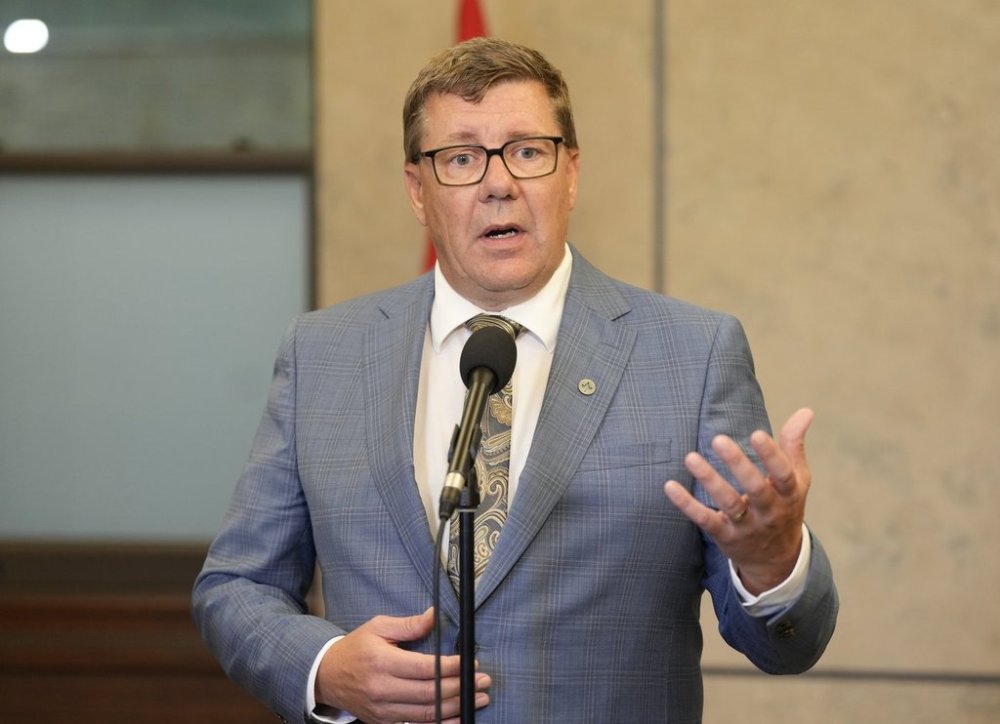Saskatchewan apologizes to former students who faced abuse at boarding school
Advertisement
Read this article for free:
or
Already have an account? Log in here »
We need your support!
Local journalism needs your support!
As we navigate through unprecedented times, our journalists are working harder than ever to bring you the latest local updates to keep you safe and informed.
Now, more than ever, we need your support.
Starting at $15.99 plus taxes every four weeks you can access your Brandon Sun online and full access to all content as it appears on our website.
Subscribe Nowor call circulation directly at (204) 727-0527.
Your pledge helps to ensure we provide the news that matters most to your community!
To continue reading, please subscribe:
Add Brandon Sun access to your Winnipeg Free Press subscription for only
$1 for the first 4 weeks*
*$1 will be added to your next bill. After your 4 weeks access is complete your rate will increase by $4.99 a X percent off the regular rate.
Read unlimited articles for free today:
or
Already have an account? Log in here »
ÎLE-À-LA-CROSSE – The Saskatchewan government officially said sorry Monday to survivors and families for its role in the historical abuse and trauma that occurred at a boarding school for Métis and First Nations children.
Premier Scott Moe made the apology while also announcing the province has agreed to pay $40 million to former students of the Île-à-la-Crosse Boarding School and their families.
“On behalf of the Province of Saskatchewan, I apologize to you,” Moe told a gathering that included survivors in the village, northwest of Saskatoon.

“Residential, day or industrial schools are a shameful mark on Canada’s history, with harmful intergenerational impacts on Indigenous and Métis people.
“Simply put, these schools were a mistake, and they shouldn’t have existed.”
The school operated from the 1820s until it burned down in the 1970s.
In 2022, a group of former students sued the province and Ottawa for the roles played in operating the school and for breaching legal duties of care.
The survivors said they were banned from speaking their language and were frequently beaten if they did, resulting in the loss of their culture and identity.
Melvina Aubichon said she started going to the school at age five and was not allowed to wear her clothes from home. On her second day at school, she had her knee-length hair cut.
She said she was hit with a strap or received no supper if she spoke with her brother or uncle, who were also at the school.
“Settling this class action is not a complete answer to any of the issues that survivors faced, but it will promote healing and journeying towards closure,” Aubichon said. “I’ve learned to embrace my culture. I love speaking my language.”
Former student Louis Gardiner said he was not allowed to use his name and was instead called by a number.
“Where do you see numbers today? In prison,” he said. “This impact is seven generations of harm.”
Moe said the proposed settlement acknowledges the students shared a common experience, were abused and their communities require healing.
“We will support the claims process that is simple, expedited, trauma-informed and cost-effective,” he said. “We need to continue to work towards a brighter future for your kids and for mine.”
The premier touted the province’s creation of an investment corporation that offers loan guarantees to Indigenous communities and businesses, along with Saskatchewan’s overall goals to boost employment among the Indigenous population.
“It’s about creating real partnerships that empower individuals to share fully in the growth and opportunity that we see in Saskatchewan,” Moe said.
Earlier this year, the federal government reached a $27-million agreement in principle for survivors of the school. It has also promised a fund of $10 million for projects to help with healing, education, language and culture.
Buckley Belanger, a secretary of state in Prime Minister Mark Carney’s Liberal government, told the gathering he’s pleased to see the file near completion.
“Métis (and) First Nations children were torn from their families and forced to attend this institution,” said Belanger, who had also gone to the school.
“I hope today we are one more step forward in achieving a sense of closure in relation to this dark moment in our history that is still felt to this day.”
This report by The Canadian Press was first published Sept. 29, 2025.
— By Jeremy Simes in Regina
